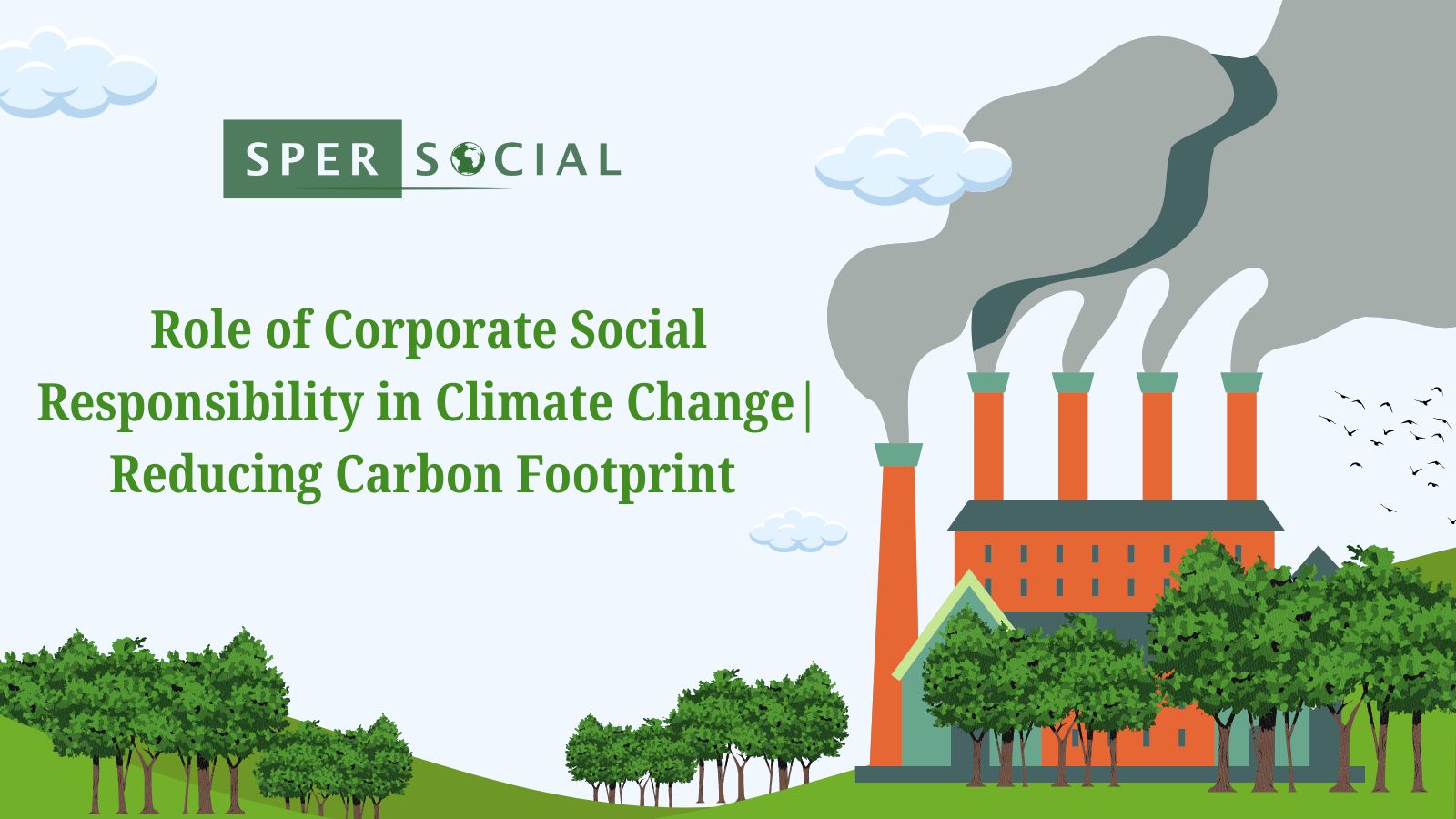
Weather splendors, such as intense heat waves, floods, and torrential downpours, have become unpredictable in an era of climate calamity. Every year that goes by, these are fostering a deadly environment, and every element of society must take swift action to address them.
Through their CSR activities, businesses may contribute significantly to these initiatives and aid in the reduction of carbon footprints.
Companies may reduce their carbon footprint by implementing strategies including boosting sustainable transportation, remote work, increasing energy efficiency, managing garbage waste, increasing the practice of using reusable items, and more. This strategy guarantees long-term revenue by improving the company's reputation while simultaneously contributing to environmental preservation.
Understanding Carbon Footprint
Companies need to understand the Carbon footprint & how they can measure & play their part in its reduction. A carbon footprint can be calculated as the total amount of Greenhouse gas emissions into the atmosphere. This emission consists of deadly climate pollutant gases like carbon dioxide, methane, and nitrous oxide. These gas originally generated from activities such as energy consumption, transportation, and industrial processes. Reducing carbon footprints involves minimizing these emissions through various strategies and innovations.
The Role of CSR in Addressing Climate Change
(CSR) plays a crucial role by aligning the company's commitment towards CSR. So that the company can operate in an economically, socially, and environmentally sustainable manner. When it comes to climate change, CSR endeavors often focus on reducing carbon footprints as a central objective. These initiatives contemplate a company's dedication to not only comply with environmental regulations but also exceed them, aiming for a positive impact on the planet.
Strategies for Reducing Carbon Footprint
1. Energy Efficiency:
a) Infrastructure Upgrades: Constructing energy-efficient structures and machinery is one of the most important things businesses can do. This involves making use of energy management systems, LED lighting, and HVAC (heating, ventilation, and air conditioning) system optimization.
b) Renewable Energy: companies can cut their greenhouse gas emissions a lot by switching to renewable energy sources like hydroelectric, solar, and wind power. A lot of businesses are investing in green energy credits or setting up on-site renewable energy installations.
2. Sustainable Transportation:
a) Electric cars (EVs): Compared to conventional gasoline or diesel-powered cars, adopting EVs for enterprise fleets can reduce pollution.
b) Public and Shared Transportation: To cut down on transportation-related emissions, encourage staff members to use the bus, carpool, or ride bicycles or other vehicles with lower carbon emissions.
c) Remote Work: Enforcing hybrid policies that allow remote work can decrease its associating & its carbon footprint.
3. Garbage management:
a) Reducing Waste: Reducing the quantity of garbage transported to landfills, which can release methane, can be achieved by implementing waste reduction initiatives, such as using less disposable cutlery and more reusable ones.
b) Circular Economy: Reducing waste and emissions may be achieved by adopting circular economy concepts, which call for items to be made for recycling, repair, and reuse.
4. Sustainable Supply Chain:
a) Sustainable Sourcing: Choosing goods and resources that have less of an impact on the environment—such as recycled or sustainably obtained materials—supports a more environmentally friendly supply chain.
The Business Case for Reducing Carbon Footprint
Reducing carbon footprints through CSR programs has measurable positive effects on the company in addition to lessening environmental impact:
1) Improved Reputation: Businesses that are acknowledged for their sustainability initiatives have a favorable brand image and draw in clients, staff, and investors that respect corporate social responsibility.
2) Risk Management: By proactively managing climate risks, one may lessen their vulnerability to fines from regulations, interruptions in the supply chain, and shortages of resources.
3) Creativity and Efficiency: Adopting a sustainable mindset stimulates creativity, which results in the creation of innovative, economically, and environmentally responsible goods, services, and procedures.
Conclusion
Reducing carbon footprints via corporate social responsibility is a strategic as well as moral necessity in the battle against climate change. Businesses may drastically reduce their greenhouse gas emissions by implementing energy efficiency, sustainable supply chains, waste management, and sustainable transportation.
SPER SOCIAL
SPER SOCIAL, your premier destination for innovative solutions in Corporate Social Responsibility (CSR) and Environmental, Social, and Governance (ESG) initiatives. At SPER SOCIAL, we pride ourselves on our expertise, tailored solutions, global perspective, and commitment to long-term impact. With a passion for sustainability and a dedication to making a difference, we empower organizations to navigate the complexities of CSR and ESG with confidence and purpose.
#303-304, Tower B, Noida One, Sector 62, Noida, India
contact@spersocial.com
+1-347-460-2899
+91-959-915-8047
